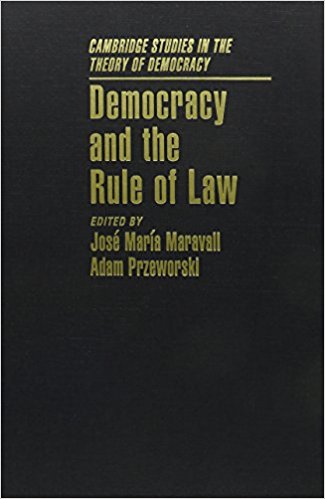The issue of political obligation has been a central concern of modern political theory. Why should people obey the state? Why should individuals subject themselves to the authority of the sovereign? Early liberal theorists referred to such benefits as, peace, security, freedom, and protection of one’s basic rights, as reasons for abiding by the law promulgated by the sovereign. As the movements for democracy and greater participation gained ground, the nature of sovereign authority and the accountability of the sovereign became the primary concerns. Democracy, it was argued, entailed a limited sovereign: limited by the rights of the citizens and the law of the land. Rule of law was expected to guarantee the liberty of the people by curtailing the arbitrary rule of men and, as such, was seen as an essential component of democracy. For many liberals, it was an instrument for enhancing individual autonomy and rule of an accountable and “principled government”. A normative link was thus postulated between democracy and the rule of law. But does this normative relationship exist in reality? Is rule of law a unique element of a democracy? Do all democracies function in accordance with the rule of law?
January 2005, volume 29, No 1

